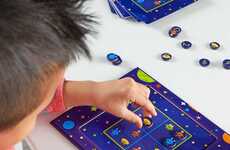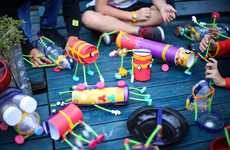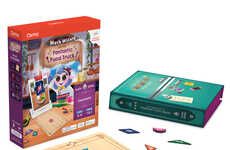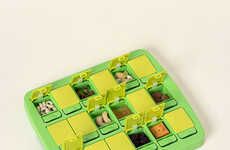
Toyella Created a Skill-Developing Sushi Maki Puzzle Game for Kids
Madison Mackay — February 26, 2018 — Life-Stages
References: toyella
Toyella, a popular toy company, created 'MakeMaki,' a sushi maki puzzle game for kids. The object of the game is to build a piece of sushi faster than the opponent. Each individual player is given a card of ingredients, which determines the size and design of each piece required for the puzzle.
The set comes with placemats, chopsticks and wooden sushi pieces enough for two people to play at once. The game is designed to heighten color recognition and spatial awareness with a fun twist. The MakeMaki sushi maki puzzle game is a fun and educational game for children of all ages, made up of real wood and child-friendly paint.
Image Credit: Toyella
The set comes with placemats, chopsticks and wooden sushi pieces enough for two people to play at once. The game is designed to heighten color recognition and spatial awareness with a fun twist. The MakeMaki sushi maki puzzle game is a fun and educational game for children of all ages, made up of real wood and child-friendly paint.
Image Credit: Toyella
Trend Themes
1. Educational Toy Games - Creating educational games that combine fun and learning can disrupt the toy industry by providing value to parents and children.
2. Skill-developing Puzzles - Developing puzzles that enhance specific skills, such as color recognition and spatial awareness, can offer unique and innovative gameplay experiences for children.
3. Interactive Tabletop Games - Designing tabletop games that foster social interaction and competition can revolutionize how children engage with traditional board games.
Industry Implications
1. Toy Industry - Integrating educational aspects into toys can create a niche market and give companies a competitive edge.
2. Childcare and Early Education - Using skill-developing toys and games in early childhood education can provide a hands-on learning experience that promotes cognitive development.
3. Board Game Industry - Incorporating interactive and skill-based elements into tabletop games can attract a new generation of players and revitalize the industry.
4.2
Score
Popularity
Activity
Freshness























